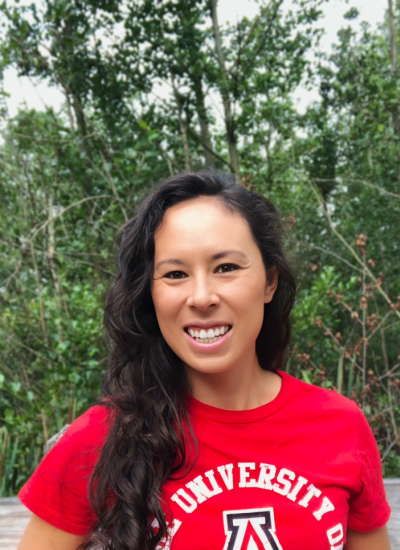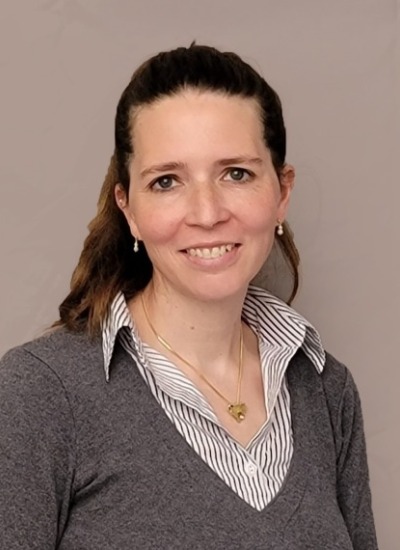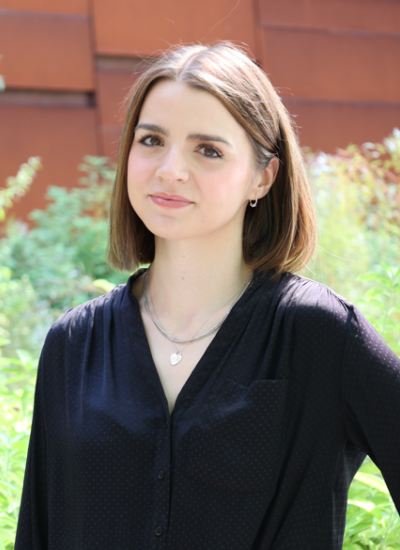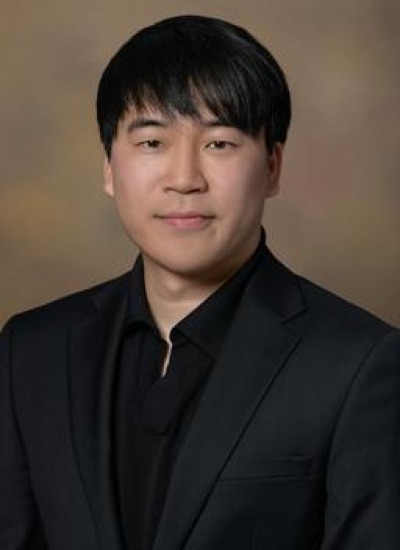Assistant Professor
Assistant Professor, Ecology and Evolutionary Biology
Member of the Graduate Faculty
Primary Department
Department Affiliations
Sabrina McNew is a disease ecologist and Assistant Professor of Ecology and Evolutionary Biology. She received her PhD from the University of Utah and was a postdoctoral fellow at Cornell University before joining the faculty at the University of Arizona in 2022. Her lab studies host-parasite interactions with a particular focus on invasive parasites and pathogens in the Galapagos Islands.
Marielle Aulikki Hegetschweiler
Assistant Professor, Chemistry and Biochemistry-Sci
Member of the Graduate Faculty
Primary Department
Department Affiliations
Work Summary
Most proteins need to attain a 3D structure to function properly. They are synthesized as unfolded chains and must fold into the right structure. Failure in this process can lead to protein misfolding diseases such as Alzheimer’s disease, Huntington's disease, Parkinson's disease, Creutzfeld-Jakob disease, or cystic Fibrosis. Chaperones play a crucial role in maintaining protein homeostasis, but the mechanism of how they work is not fully understood. In our group, we focus on Hsp60 and its obligate substrates, including Ab (the Alzheimer's peptide), malate dehydrogenase, and superoxide dismutase. Through the use of solution-state NMR, cryo-electron microscopy, and various other biochemical assays, we investigate the mechanism by which Hsp60 assists in protein folding and prevents the toxic aggregation of Ab.
Research Interest
Shanna Hamilton
Assistant Professor, Cellular and Molecular Medicine
Member of the Graduate Faculty
Primary Department
Department Affiliations
Contact
(520) 621-0303
Work Summary
Abnormal intracellular calcium handling is implicated in many cardiovascular diseases and can lead to arrhythmias and sudden cardiac death. The overarching goal of the Hamilton laboratory is to decipher molecular mechanisms of calcium regulation in the healthy and diseased heart, with the end goal of uncovering novel therapeutic strategies to treat arrhythmias and heart disease.
Research Interest
Eung Joo Lee
Assistant Professor, Electrical and Computer Engineering
Member of the Graduate Faculty
Primary Department
Department Affiliations
Contact
(520) 621-2434
Work Summary
I am an assistant professor in the Department of Electrical and Computer Engineering at the University of Arizona. Prior to working at the University of Arizona, I was a postdoctoral research fellow at MGH/Harvard Medical School. I completed my Ph.D. in the Department of Electrical and Computer Engineering at the University of Maryland, College Park. During my doctoral studies, I engaged in a research internship at the U.S. Army Research Laboratory.





